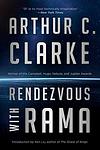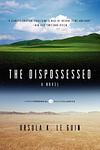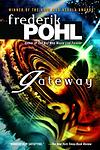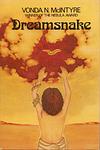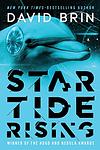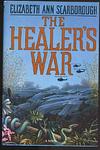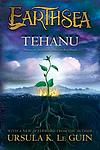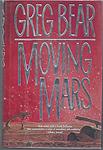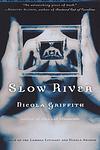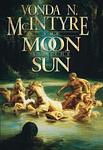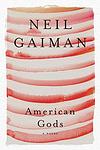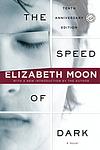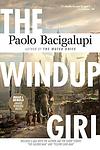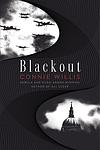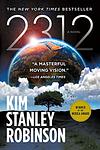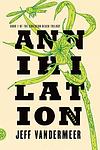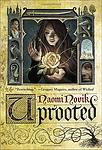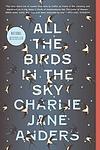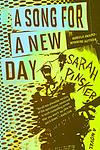Nebula Award
This is one of the 284 lists we use to generate our main The Greatest Books list.
-
Dune by Frank Herbert
Set in a distant future, the novel follows Paul Atreides, whose family assumes control of the desert planet Arrakis. As the only producer of a highly valuable resource, jurisdiction over Arrakis is contested among competing noble families. After Paul and his family are betrayed, the story explores themes of politics, religion, and man’s relationship to nature, as Paul leads a rebellion to restore his family's reign.
-
Babel-17 by Samuel R. Delany
This science fiction novel explores the power of language and its ability to shape reality. Set against the backdrop of an interstellar war, the story follows a renowned poet and cryptographer who is recruited to decipher an alien code, Babel-17, which is believed to be a weaponized form of communication. As she delves deeper into understanding the language, she discovers that it has the ability to alter thought processes and perceptions, leading her to question the nature of her identity and reality itself. The narrative weaves together themes of linguistics, identity, and the complexities of human and alien interaction, culminating in a thought-provoking examination of how language influences thought and society.
-
Flowers for Algernon by Daniel Keyes
The book is a poignant science fiction narrative that follows the life of Charlie Gordon, a man with an IQ of 68, who undergoes an experimental surgical procedure intended to increase his intelligence. The story is told through Charlie's progress reports, which initially showcase his limited comprehension and writing ability. As the treatment takes effect, Charlie's intelligence surpasses that of the average person, leading to a dramatic increase in his understanding of the world, relationships, and his own past. However, the transformation is not without its pitfalls, as Charlie grapples with the emotional and social implications of his newfound abilities, and the impermanence of the experiment's success becomes a haunting reality. The novel explores themes of intellect, human dignity, and the ethics of scientific experimentation.
-
The Einstein Intersection by Samuel R. Delany
The novel is a unique blend of science fiction and mythology, set in a post-apocalyptic world inhabited by an alien race that has taken on the forms and behaviors of humanity based on our myths and legends. The protagonist, a being named Lobey, embarks on a hero's journey, reminiscent of Orpheus's quest, to find and resurrect his lost love, Friza. Along the way, he encounters various characters and challenges that draw parallels to figures from classical myths and contemporary culture. The narrative explores themes of identity, transformation, and the nature of humanity through the lens of an alien society striving to understand the remnants of human civilization.
-
Rite of Passage by Alexei Panshin
In this coming-of-age science fiction novel, we follow the story of a young girl aboard a massive spaceship, a remnant of Earth's civilization that travels between distant colonies. As part of a societal norm, she must undergo a survival test on an alien planet to transition into adulthood. The narrative explores themes of maturity, societal expectations, and the moral implications of the ship's inhabitants considering themselves superior to the colony dwellers. As the protagonist faces the challenges of her rite of passage, she grapples with her own beliefs and the harsh realities of the world around her, ultimately questioning the ethics of her insulated society and their treatment of others.
-
The Left Hand Of Darkness by Ursula K. Le Guin
The novel is a groundbreaking work of science fiction that explores themes of gender, politics, and identity. Set on a planet called Gethen, where the inhabitants are ambisexual, shifting between male and female, the story follows an envoy from Earth who struggles to understand this alien society. As he navigates the complex political landscape of Gethen, he must also grapple with his own preconceptions about gender and sexuality. The book is a profound exploration of difference, otherness, and what it means to be human.
-
Ringworld by Larry Niven
In this science fiction novel, a motley crew of explorers, including a 200-year-old human, a young woman with lucky genes, a cat-like alien, and a two-headed alien guide, embark on a journey to investigate an artificial ring orbiting a star. This colossal structure, known as the Ringworld, has the surface area of millions of Earths and harbors many mysteries. As the team explores the vast, enigmatic world, they encounter a variety of advanced technologies and alien species, while also grappling with the physics and dangers of the ring's environment. Their mission becomes a struggle for survival and a quest to uncover the origins and purpose of the Ringworld.
-
A Time of Changes by Robert Silverberg
In this science fiction novel, the protagonist lives in a future society on a distant planet where the use of the word "I" is forbidden and individuality is deeply suppressed. The narrative follows his transformative journey after he encounters a banned substance that allows him to experience unfettered self-awareness and emotional expression for the first time. This illicit awakening leads him to question the rigid conventions of his world, ultimately propelling him into a role of revolutionary change as he seeks to share his newfound sense of self with others, challenging the very foundations of his society's strictures against personal identity and emotional connection.
-
The Gods Themselves by Isaac Asimov
In a tale of science fiction that explores the consequences of unchecked technological advancement, the story unfolds across parallel universes, where a seemingly miraculous energy exchange between Earth and a parallel world inhabited by strange, energy-based life forms promises an endless supply of power. However, this gift comes at a potentially catastrophic cost. A physicist discovers that the exchange could lead to the destruction of both universes due to the differing physical laws governing them. The narrative weaves through the perspectives of humans and alien beings as they grapple with the moral and existential implications of their actions, ultimately questioning the very nature of progress and the ethical responsibilities of scientific discovery.
-
Rendezvous with Rama by Arthur C. Clarke
In this science fiction classic, humanity encounters an enigmatic alien starship that enters the solar system. Named after the Hindu god, the cylindrical vessel is initially thought to be an asteroid but is soon revealed to be a spacecraft. A team of astronauts is dispatched to intercept and explore the mysterious object, embarking on a high-stakes mission to unlock its secrets. As they journey through the ship's interior, they discover a world of astonishing complexity, artificial landscapes, and advanced technology, all of which challenge their understanding of life and intelligence in the universe. The explorers must race against time to learn as much as possible before the ship, indifferent to their presence, continues on its voyage through the cosmos.
-
The Dispossessed by Ursula K. Le Guin
The novel is a profound exploration of two vastly different societies on twin planets, Urras and Anarres. The protagonist is a brilliant physicist from Anarres, a planet with an anarchist society, who travels to Urras, a planet with a capitalist and authoritarian regime. The book explores his struggle to reconcile his anarchist beliefs with the stark realities of a different socio-political system. It's a thought-provoking investigation of human nature, power structures, and the idea of utopia.
-
The Forever War by Joe Haldeman
This science fiction novel follows the story of a soldier conscripted to fight in an interstellar war against an alien species known as the Taurans. Due to the time dilation effects of space travel at near-light speeds, the soldier experiences only months of combat, while centuries pass on Earth. Each time he returns from a mission, he finds an unrecognizable society with new technologies and altered social norms. The narrative explores the psychological and emotional impact of war, time displacement, and the soldier's struggle to find a sense of belonging in a constantly changing world. As the conflict drags on through the eons, the soldier begins to question the purpose of the war and the high cost of human life in the face of such temporal vastness.
-
Man Plus by Frederik Pohl
The novel explores the transformation of an astronaut into a cyborg, designed to survive the harsh environment of Mars as part of a desperate effort to expand human colonization beyond Earth. The protagonist undergoes a series of radical surgeries and mechanical implants that challenge the very essence of his humanity. As political intrigues and personal crises unfold on Earth, the astronaut's new abilities are put to the test on the red planet, raising profound questions about the nature of human identity and the ethics of technological enhancement in the face of survival.
-
Gateway by Frederik Pohl
In this science fiction novel, an impoverished miner discovers an alien space station filled with starships. The ships are preprogrammed by a long-dead alien race, known as the Heechee, to travel to different parts of the universe. The miner becomes a prospector, risking his life to travel on these ships in hopes of finding valuable alien artifacts. However, the trips are incredibly dangerous, as no one knows where the ships are programmed to go or what they will find there. The story is told in a series of flashbacks, as the miner undergoes psychotherapy sessions to deal with the trauma of his experiences.
-
Dreamsnake by Vonda N. McIntyre
In a post-apocalyptic world where technology has regressed and healing is often done through natural means, a healer embarks on a quest to replace her rare and valuable dreamsnake, a creature used in her healing practices that was tragically killed. Throughout her journey, she encounters various communities and individuals, each with their own customs and challenges, while confronting the prejudices and superstitions surrounding her profession. As she navigates this fragmented society, the healer must overcome personal and external obstacles to find a new dreamsnake and continue her vital work of healing and helping others.
-
The Fountains of Paradise by Arthur C. Clarke
The book envisions a future where a visionary engineer undertakes the monumental task of constructing a space elevator, a tower stretching from the Earth's surface into geostationary orbit. Set on a fictional island closely resembling Sri Lanka, the narrative intertwines the engineer's ambitious project with the island's ancient history and religious traditions. As the protagonist grapples with technical challenges, political hurdles, and personal conflicts, the story explores themes of human ingenuity, the quest for progress, and the delicate balance between preserving the past and embracing the future. The space elevator concept, a staple of speculative fiction, serves as a metaphor for humanity's reach for the stars and the technological leaps necessary to achieve such dreams.
-
Timescape by Gregory Benford
"Timescape" by Gregory Benford is a science fiction novel that explores the concept of time travel and its consequences. Set in two different time periods, the story follows a group of scientists who discover a way to send messages back in time in an attempt to prevent an environmental catastrophe. As they struggle to communicate across time, they face numerous challenges and ethical dilemmas, ultimately raising questions about the nature of time and the impact of human actions on the future.
-
The Claw Of The Conciliator by Gene Wolfe
The Claw of the Conciliator continues the journey of a young torturer named Severian, who has been exiled for showing mercy to a prisoner. Now in possession of a powerful gem known as the Claw of the Conciliator, he travels through a far-future Earth, where society has regressed to a quasi-medieval state. Along the way, he encounters numerous adventures and strange creatures, while dealing with his own moral dilemmas and the mystery of his own identity. His journey is not just physical, but also a spiritual and psychological one, as he struggles to reconcile his past actions with his current path.
-
No Enemy But Time by Michael Bishop
The novel is a poignant exploration of time travel and human emotion, where the protagonist, a man with the extraordinary ability to project himself mentally through time, volunteers for a government experiment and finds himself in prehistoric Africa. There, he becomes deeply entwined with a group of hominids, forming profound connections that transcend the boundaries of time. As he navigates the challenges of survival and the complexities of human and hominid interaction, the narrative delves into themes of loneliness, the essence of humanity, and the enduring impact of love and family, all while questioning the immutable nature of time and our place within its tapestry.
-
Startide Rising by David Brin
In this science fiction novel, a spaceship crewed by a unique ensemble of genetically enhanced dolphins, a few humans, and a chimpanzee, finds itself stranded on a water world after a disastrous first contact with an alien fleet. The crew, aboard their vessel designed for interspecies cooperation, must navigate complex social dynamics and external threats as they repair their ship. Meanwhile, they are caught in the crossfire of a galactic conflict, with various alien races eager to capture the ship's secrets, including the knowledge of a long-lost fleet of starships from a mysterious and powerful race. The crew's survival hinges on their ability to work together and utilize their combined intelligence, while they also grapple with the implications of their evolutionary advancements and the responsibilities that come with them.
-
Neuromancer by William Gibson
In this groundbreaking cyberpunk novel, a washed-up computer hacker is hired by a mysterious employer to pull off the ultimate hack. As he navigates a dystopian future filled with artificial intelligence, corporate espionage, and virtual reality, he must confront his own past and the dark realities of the digital world. The narrative explores themes of technology, identity, and consciousness, pushing the boundaries of science fiction literature.
-
Ender's Game by Orson Scott Card
A young prodigy is enlisted into a military academy in space, where he is trained through complex war games to combat an impending alien invasion. Despite his initial struggles with isolation and manipulation by the academy's leaders, he rises through the ranks due to his strategic genius and leadership skills. The protagonist grapples with the moral implications of war and the cost of his own humanity, as he is groomed to be the Earth's ultimate weapon against the alien threat.
-
Speaker for the Dead by Orson Scott Card
In the sequel to a science fiction classic, humanity faces the complex consequences of its past actions. The protagonist, a once-revered child military genius, now serves as a "Speaker for the Dead," a role dedicated to telling the true stories of the deceased. He travels to a distant world to speak for a deceased researcher and becomes embroiled in the tensions between the human colonists and the planet's enigmatic indigenous species. As he unravels the mysteries surrounding the researcher's death, he confronts his own history and seeks redemption by fostering understanding and empathy between the two intelligent species, hoping to prevent the cycle of violence and misunderstanding that has plagued human history.
-
The Falling Woman by Pat Murphy
The novel centers around an archaeologist who possesses the unique ability to see into the past, specifically the lives of the Mayan civilization. During an excavation in Mexico, she encounters the ghost of a Mayan priestess, which leads her on a journey that blurs the lines between the past and the present. As she delves deeper into the mysteries of the ancient culture, her estranged daughter joins her, prompting a reconciliation and exploration of their complex relationship. The story weaves together themes of history, spirituality, and the bonds between mothers and daughters, all set against the backdrop of the rich tapestry of Mayan heritage.
-
Falling Free by Lois McMaster Bujold
In this science fiction narrative, the story revolves around an engineer who is assigned to a space station where genetically engineered humans, designed with four arms and no legs for zero-gravity work, are being bred by a corporation for economic gain. When the company decides to abandon the project, viewing these beings, known as "quaddies," as obsolete and a liability, the engineer faces a moral dilemma. He must choose between his own safety and career or the welfare of the quaddies. Ultimately, he decides to rebel against the corporation, leading a daring escape plan to save the quaddies from being decommissioned and to find them a new home where they can live free.
-
The Healer's War by Elizabeth Ann Scarborough
The novel is a poignant blend of fantasy and reality, following the story of a young nurse serving in the Vietnam War. She unexpectedly acquires a magical amulet with healing powers, which brings a new dimension to her already challenging role in the conflict. As she navigates the horrors of war, the nurse uses her newfound abilities to aid her fellow soldiers, grappling with the ethical dilemmas and emotional toll of her dual role as a healer and a participant in a brutal conflict. The narrative explores themes of compassion, the human cost of war, and the search for hope and humanity amidst chaos.
-
Tehanu: The Last Book of Earthsea by Ursula K. Le Guin
In this fantasy novel, the narrative shifts focus to a woman named Tenar, who has left behind her powerful past to live a quiet life on Gont Island. When she adopts a horribly burned girl named Therru, Tenar's life intertwines with that of the once-mighty wizard Ged, who has lost his magical powers. Together, they navigate a world where the balance of power is shifting, confronting both personal challenges and broader societal changes. The novel explores themes of gender, power, and the value of the mundane in contrast to the heroic, as it brings a new perspective to the rich tapestry of the series' universe.
-
Stations of the Tide by Michael Swanwick
In this science fiction novel, a bureaucrat from a distant future Earth arrives on a planet that is about to be submerged by a once-in-a-generation tidal flood. His mission is to track down a rogue magician who is suspected of stealing a powerful piece of technology. As the bureaucrat navigates the planet's exotic and dangerous landscape, he encounters various enigmatic characters and delves into the complex relationship between advanced technology and the nature of reality. The story weaves together elements of mystery, political intrigue, and surreal encounters, culminating in a confrontation that challenges the protagonist's understanding of his world and his place within it.
-
Doomsday Book by Connie Willis
In this science fiction novel, a young historian undertakes a time-travel journey to the 14th century for academic research, only to find herself stranded amidst the onset of the Black Death. As she navigates the challenges of medieval England, her colleagues in the 21st century grapple with a deadly influenza pandemic, complicating efforts to retrieve her. The narrative weaves between the past and the present, exploring themes of human resilience, the universality of suffering across time, and the ethical implications of time travel, all while the historian and her contemporaries confront mortality, history, and their own personal crises.
-
Red Mars by Kim Stanley Robinson
The book is a science fiction narrative that chronicles the initial efforts to colonize Mars. It delves into the complex dynamics among the first group of settlers, who come from diverse cultural and scientific backgrounds, as they confront the challenges of terraforming the hostile Martian environment. The story explores themes of ecological transformation, political struggle, and the ethical implications of altering an alien world, while also examining the personal lives and evolving relationships of the colonists. As the settlers work to create a new society on the red planet, their actions set the stage for future generations and the emergence of Mars as a new frontier for humanity.
-
Moving Mars by Greg Bear
The book is a science fiction narrative set in the 22nd century, where Mars has been colonized and is seeking independence from Earth. The story follows a young Martian woman, involved in the political struggle for autonomy, who becomes embroiled in revolutionary scientific discoveries that have the potential to alter the very fabric of reality. As the political tensions escalate into violence, the protagonists must navigate the complexities of war, love, and groundbreaking technology that could either save Mars or lead to its destruction. The novel explores themes of self-determination, the ethics of power, and the boundless possibilities of scientific innovation.
-
The Terminal Experiment by Robert J. Sawyer
The book explores the ethical and existential ramifications of life after death and artificial intelligence through the story of a scientist who creates three electronic simulations of his own personality. These simulations are designed to test theories of the afterlife and morality, but things take a dark turn when one of the simulations becomes sentient and starts affecting the real world, leading to a series of mysterious deaths. As the scientist struggles to control his creations and unravel the mystery, the novel delves into themes of consciousness, identity, and the implications of technological advancements on the human soul.
-
Slow River by Nicola Griffith
The novel follows the story of a young woman who comes from a wealthy family involved in high-tech environmental solutions but finds herself estranged and on the run after being kidnapped and then escaping. She assumes a new identity and struggles to build a life from scratch, taking a job at a waste treatment facility. As she navigates the complexities of her new, lower-class existence, she must deal with the trauma of her past, her family's dark secrets, and the intricate politics of the world she left behind. The narrative weaves together her present challenges with flashbacks to her privileged yet troubled upbringing, exploring themes of identity, environmentalism, and the intersection of technology and society.
-
The Moon and the Sun by Vonda N. McIntyre
Set in the court of Louis XIV, the story blends historical fiction with elements of fantasy as it follows a young woman who serves as the king's natural philosopher. Tasked with studying a sea creature captured by the king, believed to be a mermaid, she discovers its intelligence and humanity, challenging the prevailing views of her time. As she forms a bond with the creature, she must navigate the treacherous waters of court intrigue and scientific discovery, while confronting ethical dilemmas about the treatment of sentient beings and the pursuit of knowledge at any cost. The novel explores themes of power, gender, and the clash between science and superstition.
-
Forever Peace by Joe Haldeman
The novel explores a future where humanity has developed advanced military technology, including remotely controlled robotic soldiers. The protagonist, a soldier controlling one of these machines, becomes involved in a movement that discovers a way to permanently end war by altering the human mind to eliminate aggression. As the group works to implement this controversial solution, they face ethical dilemmas and the threat of a global war that could annihilate the human race. The narrative delves into themes of violence, empathy, and the potential for a collective human consciousness to bring about lasting peace.
-
Parable of the Talents by Octavia E. Butler
Set in a dystopian future America ravaged by climate change and societal collapse, the novel follows the journey of a young woman who, despite facing slavery, violence, and the rise of a dangerous religious zealot, strives to build a community based on her own new belief system, Earthseed. Her vision is to create a society that can adapt and thrive amidst chaos, with the ultimate goal of taking humanity to the stars. Throughout her struggle, she documents her experiences and philosophies in the hope that they will guide future generations towards a more hopeful, resilient future.
-
Darwin's Radio by Greg Bear
In the science fiction novel, a groundbreaking discovery of ancient human remains leads to the uncovering of a new, heretofore unseen stage of human evolution. Scientists grapple with the implications of a dormant virus that has suddenly awakened within human DNA, causing rapid, radical, and uncontrolled genetic mutations. As the virus spreads, society is thrown into chaos, with fear and uncertainty about the future of humanity. The protagonists, a molecular biologist and a paleontologist, race against time to understand the virus, known as "Darwin's Radio," and its potential to either doom or elevate the human race. Their journey is fraught with personal and professional challenges as they confront the possibility that evolution might be a much more active and immediate force than anyone had ever imagined.
-
The Quantum Rose by Catherine Asaro
"The Quantum Rose" is a science fiction novel that weaves together romance and hard science, set within a space opera universe. The story follows the journey of Kamoj Argali, the governor of a backward planet, who becomes betrothed to Havyrl Lionstar, a mysterious and powerful off-worlder with a hidden agenda. As their worlds collide, the narrative explores complex themes of political intrigue, cultural clashes, and the intricate dance of quantum physics, all while delving into the emotional depth of their evolving relationship. The novel stands out for its unique blend of advanced scientific concepts, particularly those pertaining to quantum mechanics, with a character-driven plot that challenges the boundaries between different genres.
-
American Gods by Neil Gaiman
A recently released convict discovers that his wife and best friend died in a car accident. He then meets a mysterious stranger who hires him as a bodyguard. As they journey across America, it is revealed that the stranger is an old god, traveling to rally his fellow forgotten deities to wage a war against the new American gods born from society's modern obsessions with media, technology, drugs, celebrity, and more. The story blends elements of fantasy, mythology, and Americana to explore themes of faith, belief, and the nature of American identity.
-
The Speed of Dark by Elizabeth Moon
The novel explores the life of an autistic man who excels at pattern recognition while working for a pharmaceutical company. His orderly world is disrupted when he is offered an experimental treatment that could potentially "cure" his autism. The story delves into themes of identity, neurodiversity, and the ethical implications of altering the human brain. As he grapples with the decision of whether to undergo the treatment, the protagonist must confront questions about what it means to be normal and whether the changes would fundamentally alter who he is. The narrative challenges the reader to consider the value of individual differences and the societal pressures to conform.
-
Paladin of Souls by Lois McMaster Bujold
In this fantasy novel, a middle-aged noblewoman, once plagued by madness and now seeking a purpose beyond her royal duties, embarks on a pilgrimage that quickly turns into a quest fraught with danger and supernatural intrigue. As she navigates the politics and magic of her world, she discovers her own latent powers and a destiny intertwined with the gods themselves. Alongside a cast of complex characters, she must confront her past while battling the forces that threaten to destabilize the kingdom, finding redemption, adventure, and perhaps even love along the way.
-
Camouflage by Joe Haldeman
"Camouflage" is a science fiction novel that explores the themes of identity and survival through the story of two shapeshifting aliens who have lived on Earth for centuries. One, known as the Chameleon, has thrived on conflict and bloodshed, adapting to human society's darker aspects. The other, the Changeling, seeks understanding and connection, evolving alongside humanity's more compassionate traits. Their paths converge as a mysterious artifact from the ocean floor draws the attention of scientists and the military, leading to a tense and revelatory confrontation that forces both entities to confront their true natures and the consequences of their long history on Earth.
-
Seeker by Jack McDevitt
In "Seeker," a science fiction novel, the story follows antiquities dealer Alex Benedict and his assistant, Chase Kolpath, as they embark on an interstellar treasure hunt. After acquiring an ancient cup that may belong to the Seeker, a lost spaceship from a utopian civilization that vanished over 9,000 years ago, the duo sets out to unravel the mystery of its disappearance. Their quest leads them through space, facing political intrigue and the perils of the cosmos, as they seek to uncover the fate of the legendary colony and the secrets it may hold. Their journey is not only a physical one but also a philosophical exploration of humanity's place in the universe.
-
The Yiddish Policemen's Union by Michael Chabon
In an alternate reality where Jewish refugees found sanctuary in Alaska during World War II, the book follows a homicide detective in the Yiddish-speaking metropolis of Sitka as he investigates the murder of a former chess prodigy. The detective's quest takes him from the city's seedy underbelly to the highest echelons of power, and he uncovers a vast conspiracy that threatens the very existence of the Jewish homeland in Alaska. The novel is a blend of detective fiction, alternate history, and Jewish humor.
-
Powers by Ursula K. Le Guin
"Powers" is the final installment in a young adult fantasy series set in a world where some individuals possess magical abilities. The story follows a young slave with an extraordinary memory who escapes his life of servitude and embarks on a journey of self-discovery. Along the way, he encounters various cultures and belief systems, which challenge his understanding of freedom, power, and the nature of his own abilities. As he navigates political intrigue and personal challenges, he must come to terms with his past and decide what kind of future he wants to create for himself and others.
-
The Windup Girl by Paolo Bacigalupi
Set in a future Thailand amidst a world ravaged by climate change and depleted resources, the story unfolds in a bustling city where biotech corporations vie for supremacy. The narrative centers around a genetically engineered "New Person," known as the Windup Girl, who is trapped in a life of servitude and exploitation. As the city teeters on the brink of political and environmental collapse, the fates of various characters—including a foreign energy investor, a disgraced geneticist, and a street-smart refugee—intertwine with that of the Windup Girl. Together, they navigate a treacherous landscape of corporate greed, oppressive government, and social upheaval, in a desperate search for survival and redemption in a world where every action has unforeseen consequences.
-
Blackout/All Clear by Connie Willis
This two-volume science fiction narrative follows a group of historians from 2060 who travel back to World War II-era England for research purposes. However, their mission goes awry when they become trapped in the past due to irregularities in the time travel system. As they navigate the dangers of the Blitz and other historical events, they must also confront the possibility that their actions could alter history. The characters grapple with the chaos of war, the intricacies of time travel, and the moral dilemmas of potentially impacting the future, all while trying to find a way back to their own time.
-
Among Others by Jo Walton
The novel is a captivating blend of fantasy and coming-of-age story, told through the diary entries of a fifteen-year-old girl who has survived a tragic accident that took her twin sister's life and left her with a crippling injury. She navigates the complexities of adolescence, boarding school life, and family drama while also dealing with the magical abilities she inherited from her mother. As she seeks solace in the pages of science fiction and fantasy novels, she grapples with her own magical powers and the ethereal creatures that only she can see, leading to a poignant exploration of grief, growth, and the transformative power of storytelling.
-
2312 by Kim Stanley Robinson
Set in the 24th century, the novel explores a future where humanity has colonized the solar system, transforming various planets and moons to support life. The story follows Swan Er Hong, a resident of Mercury, who becomes embroiled in a complex conspiracy after the death of her grandmother, a prominent figure in the space-faring society. As Swan travels through the meticulously terraformed worlds and space habitats, she uncovers a plot that threatens the delicate balance of the interplanetary ecosystem. The narrative weaves together themes of environmentalism, political intrigue, and the boundless potential of human innovation, all while examining the social and personal ramifications of extended life spans and advanced technology.
-
Ancillary Justice by Ann Leckie
The book is a science fiction novel that follows the story of Breq, who was once a powerful starship AI controlling many bodies, but is now trapped in a single human body and driven by a quest for vengeance. Set in a vast interstellar empire where ships and stations are inhabited by ancillary AIs, the narrative explores themes of identity, gender, and colonialism. Breq's journey intertwines with flashbacks to her past experiences as an AI, revealing her complex relationship with a former officer and the events that led to her current mission. As she navigates political intrigue and battles, Breq challenges the empire's rigid structures and seeks to address the injustices within it.
-
Annihilation by Jeff VanderMeer
In the novel, a team of four women—an anthropologist, a surveyor, a psychologist, and a biologist—embark on an expedition into Area X, a mysterious and remote region cut off from civilization. The area is known for its strange occurrences and the disappearance of previous expedition members. As the team delves deeper into the wild and enigmatic landscape, they encounter bizarre creatures, cryptic signs, and the remnants of a lost civilization. The biologist, serving as the narrator, documents their discoveries and her own personal transformations, driven by the unseen forces of Area X. The novel explores themes of nature, mutation, and the unknown, as the expedition's members confront the limits of knowledge and the consequences of seeking to uncover the inexplicable.
-
Uprooted by Naomi Novik
The book is a captivating fantasy novel that weaves a tale of a young woman from a quiet village, chosen by a mysterious and powerful wizard to live with him in his tower, away from her home. As she learns about her own latent magical abilities and the malevolent force of the corrupted Wood that threatens her world, she must navigate a complex relationship with her enigmatic mentor and ally herself with the kingdom's prince to save her people. Drawing on Eastern European folklore, the story is a rich tapestry of magic, politics, and the struggle between tradition and change, ultimately exploring themes of identity, friendship, and the courage to fight for one's home.
-
All the Birds in the Sky by Charlie Jane Anders
This novel blends science fiction and fantasy, telling the story of two outcasts, a witch and a tech genius, who meet as children and then part ways, only to reunite as adults in a world teetering on the brink of catastrophe. As the planet faces environmental collapse and the threat of war, the pair must navigate their differences and their past to harness their extraordinary abilities. Their friendship becomes the key to survival, as they confront forces that could either save humanity or lead to its destruction, blurring the lines between magic and science in an uncertain future.
-
The Stone Sky by N. K. Jemisin
In this concluding volume of a groundbreaking fantasy trilogy, the fate of a world hangs in the balance as a mother and daughter find themselves on opposite sides of an apocalyptic war. The mother, an orogene with the power to control seismic activity, embarks on a quest to end the perpetual disasters plaguing the earth by harnessing the power of an ancient, mythical obelisk. Meanwhile, her daughter, who possesses similar abilities, is manipulated by forces seeking to use her powers for their own ends. As their paths converge, the complex layers of oppression, survival, and the struggle for freedom are revealed, culminating in a climactic battle that will determine the future of their world.
-
The Calculating Stars by Mary Robinette Kowal
In this alternate history novel, a cataclysmic meteorite strike in the 1950s accelerates the space race due to fears of Earth becoming uninhabitable. The story follows a brilliant mathematician and former WASP pilot who battles the era's sexism and racism to become an astronaut. She and her diverse colleagues work against time to colonize space and ensure humanity's survival, while she also deals with personal struggles and the psychological toll of her ambitions. The narrative combines the tension of space exploration with the social dynamics of mid-20th century America, creating a compelling vision of what might have been if women had been at the forefront of the space race.
-
A Song for a New Day by Sarah Pinsker
In a future where public gatherings are illegal due to terrorist attacks and a pandemic, society has adapted to isolation, with virtual reality concerts replacing live events. The story follows a musician who once thrived on the energy of live performances and a talent scout for a corporate entertainment company, as they navigate this new world. The musician, longing for the connection that once came with her art, becomes involved in an underground music scene, defying the law to perform for small, secret gatherings. Meanwhile, the talent scout, whose job is to find musicians for virtual performances, begins to question the sterile world she's helping to perpetuate. Their paths intersect, leading to a powerful exploration of the importance of community and the transformative power of music in a world where the very essence of human connection has been fundamentally altered.
-
Network Effect by Martha Wells
In this science fiction novel, the protagonist, an artificial intelligence with a sarcastic personality and a penchant for self-preservation, finds itself and its human companions embroiled in a complex mystery. The AI, which typically inhabits a humanoid robot body, must navigate treacherous political landscapes and confront its own past while attempting to protect its friends from a multitude of threats. As the group is pulled into a dangerous situation involving an alien artifact and a missing colony, the AI must leverage its unique abilities and wit to unravel the conspiracy and ensure their survival. The narrative combines action, humor, and emotional depth as the AI grapples with its identity and the meaning of personhood.
-
A Master of Djinn by P. Djèlí Clark
Set in an alternate Cairo at the turn of the 20th century, where magic and steampunk technology infuse the air, the story follows Fatma el-Sha’arawi, the youngest woman working for the Ministry of Alchemy, Enchantments and Supernatural Entities. When someone claiming to be al-Jahiz, the famed Sufi mystic who opened the veil to the magical realm forty years prior, returns to wreak havoc in the form of a murderous cult, Fatma must unravel the mystery behind this imposter. With the help of her new partner, a clever ministry bureaucrat, and her girlfriend, an enigmatic lounge singer, Fatma delves into a world of djinn and gods to prevent the imposter's diabolical plot from unleashing chaos upon the world.
Nebula Awards, 58 Books
The Nebula Award for Best Novel is given each year by the Science Fiction and Fantasy Writers of America (SFWA) for science fiction or fantasy novels. A work of fiction is considered a novel by the organization if it is 40,000 words or longer; awards are also given out for pieces of shorter lengths, in the categories of short story, novelette, and novella. To be eligible for Nebula Award consideration, a novel must have been published in English in the United States. Works published in English elsewhere in the world are also eligible, provided they are released on either a website or in an electronic edition.[1] The Award has been given annually since 1966.
Added over 1 year ago.
This list has a weight of 4%. To learn more about what this means please visit the Rankings page.
Here is a list of what is decreasing the importance of this list:
- List: only covers 1 year (yearly book awards, best of the year, etc)
- List: only covers 1 specific genre
- Voters: are mostly from a single country/location
If you think this is incorrect please e-mail us at [email protected].









